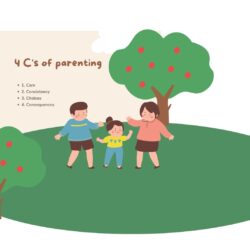Screen time plays an increasing role in children’s lives. But how does it affect learning? The answer depends on how much, how, and when it’s used. Let’s explore its effects – both good and bad – backed by research and expert advice.
Cognitive and Academic Impact
Too much screen time can interfere with concentration. Children may have difficulty focusing on schoolwork or studying.
A study by the National Institutes of Health found that children who spend more than two hours a day on screens score lower on language and thinking tests.
Multitasking with screens has been shown to impair memory. Children who switch tasks often perform poorly in problem-solving exercises.
However, educational apps can actually support math and literacy. The key depends on how screens are used, and when used appropriately, they can be a valuable learning tool.
Language Development
Young children need interaction and social play. Screens do not respond like humans do.
Children under the age of two who watch more than an hour of screen content daily are at risk for speech delays.
When parents actively engage with their children during screen time, learning is enhanced. This is called co-viewing, and it is a powerful way for parents to guide and strengthen their children’s learning experiences.
Sleep and Learning Connection
Watching screens before bedtime can affect your child’s sleep. The blue light emitted by screens reduces melatonin levels.
Poor sleep harms attention and memory. As a result, learning ability is affected.
The American Academy of Pediatrics recommends turning off screens at least an hour before bedtime. (AAP Guidelines)
Physical and Emotional Wellbeing
Long screen time often means less physical activity. Activity boosts brain function and helps children learn better.
Also, children who use screens for more than two hours a day are more likely to show symptoms of anxiety and depression.
The World Health Organization recommends limiting screen time to less than one hour a day for preschoolers. (WHO Guidelines)
Positive Uses of Screen Time
Not all screen time is harmful. Educational videos and interactive games can help with schoolwork.
Children with learning challenges may benefit from adapted digital tools. For example, apps for dyslexia or speech delays often help improve outcomes.
Virtual museums, coding games, and digital storybooks make learning fun and accessible.
Tips for Healthy Screen Use
- Set screen time limits for weekdays and weekends.
- Watch content together to boost understanding.
- Use screen-free times—like meals and bedtime.
- Encourage offline play and physical activities.
- Model healthy screen habits yourself.
Final Words
Impact of Screen Time on Kids’ Learning in many ways. When it’s not controlled, it can harm attention, sleep, and emotional health. However, as a parent, you have the power to manage and control screen time, ensuring it supports development and education.
As a parent, your guidance makes a huge difference.





